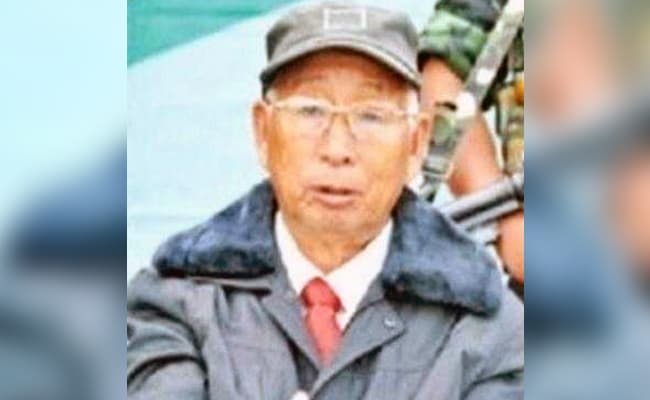
Shangwang Shangyung Khaplang, the chairman of the underground Naga rebel group Nationalist Socialist Council of Nagalim (Khaplang) or NSCN(K), died on Friday evening due to prolonged illness. 77-year-old Khaplang was a diabetic and suffered from other health issues as well.
Here are 10 things to know about Shangwang Shangyung Khaplang:
Khaplang was also the founder of the United National Liberation Front of Western South Asia, a Myanmar-based joint platform of all Northeast rebel groups formed in 2015.
Born in April 1940 at Waktham village just east of Myanmar's Pangsau Pass, close to the Indian border, Khaplang attended primary school at Margherita in Assam and went to a Baptish school in Myitkina, the headquarters of the Kachin province of Myanmar.
After he started the Naga Defence Force or NDF in 1964, he went on to become its vice-chairman and later chairman of the Eastern Naga Revolutionary Council or ENRC, which he and some others formed in 1965.
He later joined the Naga National Council or NNC under the leadership of Naga nationalist Angami Zapu Phizo, and became its vice-chairman in 1974.
But in 1975, when Phizo signed the Shillong Accord, three young leaders revolted - Issac Chisi Swu, T Muivah and SS Khaplang. They formed the Nationalist Socialist Council of Nagalim or NSCN with the idea of Naga integration and formation of a separate Naga country. Phizo's NNC had accepted the supremacy of the Indian Constitution under the Shillong Accord.
But in 1998, Khaplang left the NSCN to form his own faction, the NSCN(K). Muivah and Swu stayed together with their faction, the NSCN(IM).
In 2001, Khaplang's faction and the central government signed a ceasefire agreement, but talks never started. Khaplang was seen keener to establish his hold over Naga-inhabited areas in Myanmar. This helped other groups to establish base in that country.
In 2015 - after not getting an invitation from the government even once in over 13 years for talks - Khaplang unilaterally abrogated the ceasefire agreement, but not before his group suffered as many as three splits.
His health had been deteriorating since 2015, and he had been treated in Yangoon a couple of times, people with knowledge of the matter said. He was a diabetic and used hearing aids.
Though he carried a reward of Rs 7 lakh, Indian security forces never came close to catching him because he always stayed in Myanmar.

